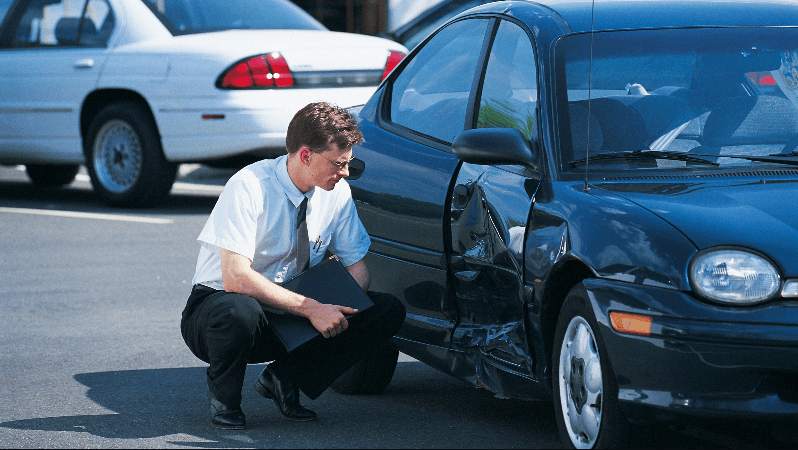When it comes to custom cars, figuring out the fair market value (FMV) can feel like a challenge. Unlike stock vehicles, which you can price using established resources like Kelley Blue Book or NADA Guides, custom cars are a different ball game.
Why? Because they’re, well, custom—no two are exactly alike. Everything from the modifications to the craftsmanship, and even regional demand, can affect a custom car’s price.
In this guide, we’ll walk you through how to determine the FMV of your custom car, exploring both the obvious factors and the hidden ones that most people don’t talk about.
Whether you’re planning to sell your ride or just curious about its worth, you’ll come away with the tools you need to get the right price.
DOWNLOAD “How to Determine the Right Price for Your Custom Car”.PDF
1. Start with the Base Value
Before you can calculate the fair market value of your custom car, you need to understand the base value of the vehicle before modifications. While the mods may increase the value significantly, you still need a starting point.
This is where pricing guides like Kelley Blue Book (KBB) or NADA Guides come into play. Look up the make, model, year, and mileage of your car as if it were in stock condition.
This will give you a baseline number that you can build on with the value of your customizations. For example, a 2005 Subaru WRX has a base value you can easily research, and from there, you begin to assess how the mods affect its FMV.
2. Modifications: The Big Factor in FMV
When pricing a custom car, modifications are typically the most obvious factor that comes into play. But here’s the thing: not all mods are created equal when it comes to increasing the car’s fair market value. Let’s break it down:
- Performance Mods: These are often highly valued, especially if they improve horsepower, torque, or handling. Think engine swaps, turbochargers, upgraded brakes, and performance suspension. These modifications can drive up the FMV because they improve the overall performance and appeal of the car.
- Cosmetic Mods: While a slick paint job or a custom body kit might attract attention, they don’t always add significant value. In fact, some overly personalized modifications might lower the FMV because they appeal to a narrower audience.
- Interior Upgrades: Mods like custom leather seats or state-of-the-art sound systems can increase value, but again, this depends on the quality and appeal. Tastefully done upgrades typically boost FMV, while overly niche modifications may not.
When considering the FMV, remember that quality matters. Top-tier mods installed by professionals can increase a car’s FMV, but poorly done upgrades can actually decrease it. For sellers, it’s crucial to document who performed the mods, which brings us to our next point.
3. Craftsmanship: Quality Work Can Boost FMV
One of the often-overlooked aspects of determining the fair market value of a custom car is the quality of the work done. High-quality craftsmanship can significantly boost FMV.
A custom paint job done by a reputable shop will hold more value than a DIY job that shows signs of wear or bubbling. Likewise, mechanical upgrades performed by professional builders can drive the FMV higher than work done by an amateur.
It’s not just about the parts—it’s about how well those parts were integrated into the car. For this reason, documentation is critical.
If you can provide records showing where the work was done, how much it cost, and who did it, you’re in a better position to argue for a higher FMV.
4. Rarity of Parts and Mods
Another key factor in determining FMV is the rarity of certain parts or mods. If your car features hard-to-find components, such as a limited-edition engine or rare body kit, that rarity can significantly increase the FMV. Collectors and enthusiasts might be willing to pay a premium for something they can’t easily find elsewhere.
However, rarity alone doesn’t always equate to added value.
The parts must also be desirable. A rare part that only appeals to a small niche of buyers may not drive the price as much as a high-performance mod that’s in demand among a broader audience.
Always weigh the balance between rarity and market demand when considering how it affects FMV.

5. Regional Demand and Market Trends
Market demand plays a huge role in a custom car’s fair market value. What’s hot in one region might not be in another.
For example, off-road modifications might increase the value of your car in places like Colorado or Utah, where off-roading is popular, but in urban areas, those same mods might not be as valued.
Keeping tabs on regional trends and seasonal demand can also help you set a fair price.
The car-buying market fluctuates, and certain types of custom cars may be worth more during specific times of the year or based on location.
A good strategy is to look at similar listings in your area on websites like Bring a Trailer, Cars & Bids, or even Facebook Marketplace.
This can give you a real-world sense of how much similar custom cars are going for and help you gauge the FMV of your own vehicle.
6. Maintenance and Long-Term Costs
It’s easy to get swept up in the excitement of mods and upgrades, but buyers will also be considering the long-term costs associated with owning a custom car.
Custom vehicles often come with higher maintenance costs, specialized parts, and unique servicing needs that can turn off potential buyers—or at least drive down the FMV.
Insurance premiums are another factor. Modified cars often carry higher insurance rates, and potential buyers will likely take this into account when determining how much they’re willing to pay.
As a seller, it’s important to be upfront about these additional costs, but also show that the car has been well-maintained.
If possible, provide records of regular maintenance and any major repairs or servicing that the car has undergone.
7. Documentation: The Key to Getting a Higher FMV
When it comes to setting the fair market value of a custom car, documentation can be your best friend. If you’ve invested in quality mods, had work done by professionals, or even entered your car in shows, having the paperwork to back it up can make a huge difference.
Buyers want to know what they’re getting, and a well-documented custom car with receipts for parts, labor, and even any awards or recognitions can justify a higher FMV.
If you can prove the quality of the modifications and the care taken with the vehicle, you’ll have a better chance of getting a top-dollar offer.
Wrapping It All Up
Determining the fair market value of a custom car involves more than just slapping on a price based on the parts list.
It’s a careful balancing act between the car’s base value, the quality and desirability of its mods, the craftsmanship involved, market demand, and even potential maintenance costs.
If you take the time to properly assess these factors, you’ll be able to set a price that’s fair—not just for you, but for potential buyers as well.
So, what’s your custom car worth? Are you ready to see if your ride can fetch the price you’re hoping for?




